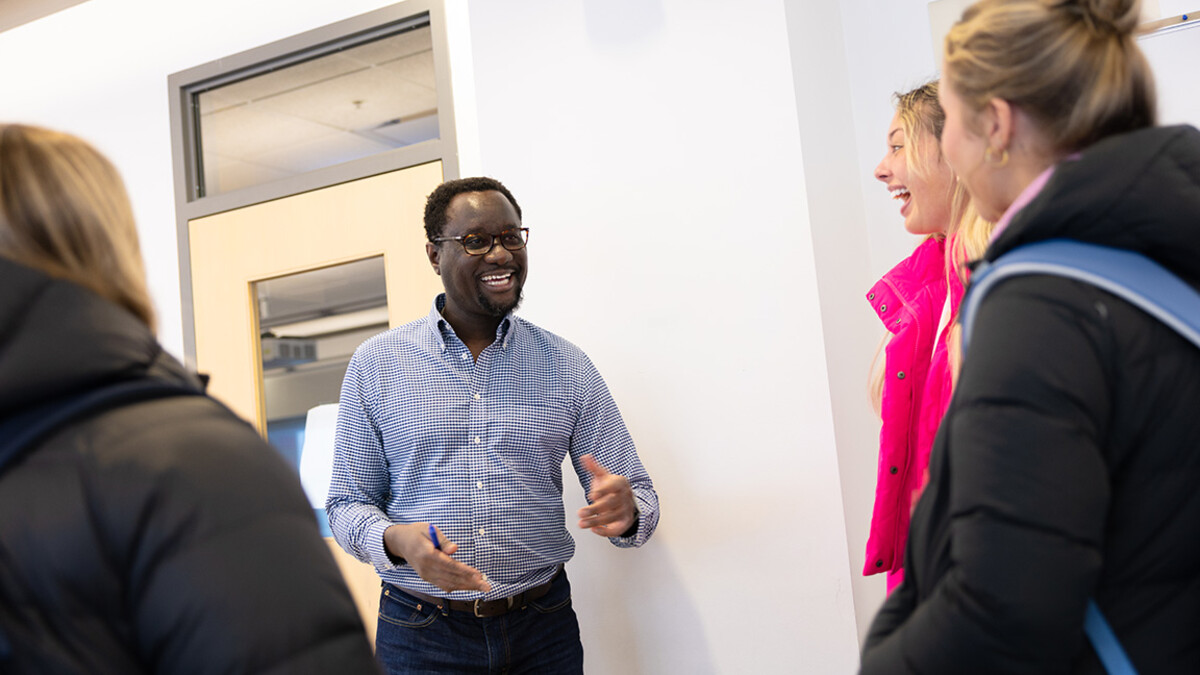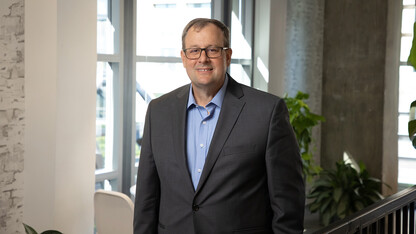
Oscar-winning filmmaker and Omaha native Alexander Payne encouraged the University of Nebraska–Lincoln’s May graduates to take chances, question everything and be true to themselves.
Full list of graduates | Graduate profiles | Photo gallery
Payne delivered the undergraduate commencement address May 5 at Pinnacle Bank Arena and received an honorary Doctor of Fine Arts from the university.
The director, producer and screenwriter is known for such acclaimed films as “Citizen Ruth,” “Election,” “About Schmidt,” “Sideways,” “The Descendants” and “Nebraska.” His movies have been nominated for 18 Academy Awards, and he has won two Oscars for best adapted screenplay (“Sideways” and “The Descendants”). “Sideways” also won the Golden Globe for best motion picture-musical or comedy of 2004.
Payne told the graduates he was far from an overnight success and that he lived like a student until he was 38. He also married later in life and had children just recently.
Payne said his parents wanted him to attend law school so he would have a career to fall back on if he didn’t make it in film. But Payne, who said he was “movie crazy since he was a little kid,” decided to pursue his passion and applied for film school at the University of California, Los Angeles during his senior year at Stanford University.
“My thought (was) that even if I sucked at it, at least I could go to my grave knowing I had tried it,” he said. “I needed to see whether my love of watching movies would translate into enjoying making them, and also whether I had any talent at it.”
He told the graduates to do what they want to do first.
“The word ‘risk’ should not be a part of your vocabulary, nor should the words ‘failure,’ ‘success’ or ‘practical,’” he said. “The most important words for you now are ‘interesting’ and ‘fun.’”
Payne stayed in graduate school until he was 29 and didn’t direct his first feature film until five years later. He said he made so little money from that movie that he had to borrow from his father to pay his taxes. He remained an “aspiring director” for a while, and his dad continued offering to send him to law school.
“Of course, as soon as I got my first Oscar nomination, it all changed to ‘my son, the director,’” he said.
Payne acknowledged that many graduates face pressure to achieve financial and job security right away, but that they can still do it on their own terms.
“My story is unique to me, but what’s not unique to me is something that I’ve both observed in others and learned from my own experience, which is that most of the time nothing is life is quite as hard as people tell you it is. You just have to stick with it,” he said. “The world is both encouraging, and even a little disappointing, in how easily it clears a path for people who use their elbows.”
Payne joked that conspiracy theorists think the world is controlled by secret cabals such as the Illumnati or the Deep State, but it’s actually run by Cornhuskers.
“We Nebraskans come armed with tools for success, and other Nebraskans know it,” he said.
He said former Nebraskans are quick to hire people from their home state because they are honest, punctual, hardworking, pleasant and know what a Runza is.

Payne encouraged the graduates to question everything and be mindful of the influence of corporations and the wealthy on politicians and government policies.
He also reminded the graduates that young people have always spearheaded change and that this is their time.
“If I can tie this whole talk up … in one little phrase: If you can find a way to be true to yourself, your deepest self, you automatically are part of a better society,” he said.
Payne spoke to the largest graduating class in the university’s history. Nebraska conferred a record 3,223 degrees during commencement exercises May 4 and 5 at Pinnacle Bank Arena and the Lied Center for Performing Arts.
The graduates are from 60 countries, 45 states and the District of Columbia, and 250 Nebraska communities.
John W. Maag, professor of special education and communication disorders at Nebraska, spoke at the graduate and professional degrees ceremony May 4.
The College of Law conducted a separate commencement ceremony May 5 at the Lied Center. Nebraska Supreme Court Justice Jeffrey Funke addressed the law graduates. Earl and Patricia Scudder, alumni and longtime supporters of the university, received the Builder Award during the ceremony.
The May graduating class earned 699 new graduate and professional degrees and 2,524 new baccalaureate degrees. The university has awarded 287,796 degrees since it was founded in 1869.







